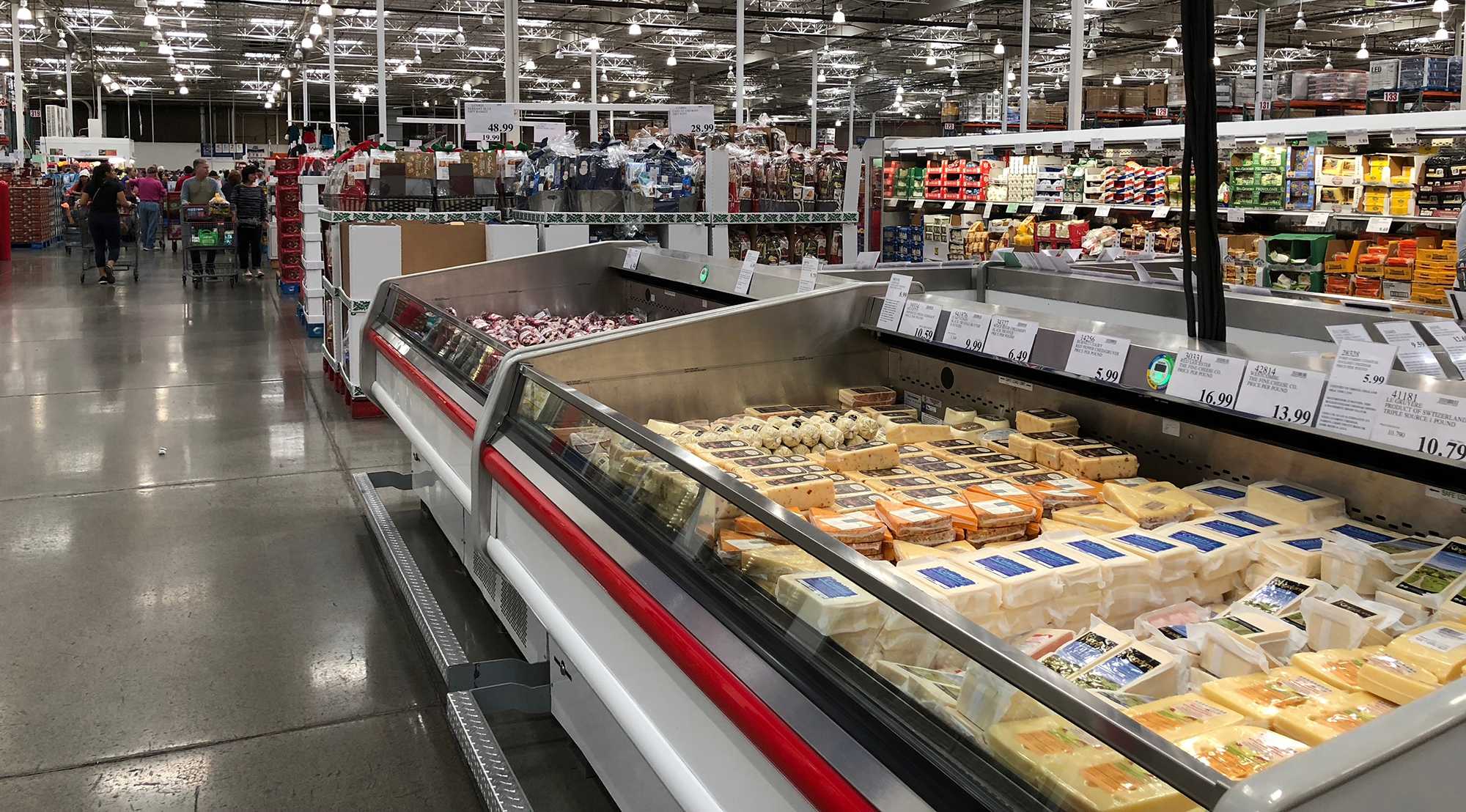US stocks of cheese, seafood, shoe, furniture, more hit by shipping woes

Image: Collected
On your next visit to Costco, don’t be surprised if you can’t find your selected cheese.
Costco is having difficulty stocking imported cheeses as a result of a shortage of shipping containers around the globe and bottlenecks at key West Coast ports, such as for example LA, Long Beach, Oakland and Seattle. The combo has resulted in delays for suppliers shipping their goods, retailers like Costco acquiring products, and higher costs along the supply chain.
“Overseas freight has continued to be an issue when it comes to container shortage and port delays. It has caused timing delays on certain categories,” Costco chief financial officer Richard Galanti said on a call with analysts the other day.
The problem isn’t just limited by cheese, but also seafood, olive oils, furniture, shoe, and lawn and garden equipment, Galanti said.
He expects the “pressures to help ease in the coming months, but it’s impacting everyone.”
Supply chain pressures have already been a constant for retailers throughout the pandemic. But a chorus of chains, including Crocs, Urban Outfitters, Foot Locker and Dollar Tree, in recent weeks have described the container shortage and backlogs at West Coast ports as the most recent challenges in securing merchandise for consumers.
“Importing product from Asia, setting it up through Long Beach and other ports, and setting it up shipped to customers is absolutely challenging at this time,” Crocs CEO Andrew Rees said on a Feb. 23 call with analysts. “I feel that will smooth out as time passes, but it’s going to have a little while.”
“We’re experiencing some delays in obtaining import merchandise as a result of worldwide equipment shortages and problems with port congestion,” Dollar Tree CFO Kevin Wampler said last week.
Home goods at Anthropologie are also delayed arriving in the usa due to container shortfalls in Asia, said Urban Outfitters COO Francis Conforti on a call with analysts.
“We are needs to see some very, very slight improvement, and we’re hopeful that the improvement will continue at a moderate pace.”
Demand for food, furniture, appliances and home goods has spiked in the pandemic as consumers spend more time at home. It hasn’t let up.
U.S. seaborne imports climbed 20% in January compared with last year, based on the latest data available from Panjiva, a global trade data research firm. Imports of consumer discretionary goods such as household appliances were the biggest driver of the growth, according to Panjiva.
Higher demand and offer chain disruption are driving up costs, too: The full total cost of shipping to the United States by sea reached $6.36 billion in January, in comparison to $2.46 billion a year earlier.
“The supply chain has been maxed out,” said Jon Gold, vice president of supply chain and customs policy at the National Retail Federation, a trade group for the retail industry. Gold said U.S. ports were “unable to handle the volume that's coming in” because of a surge popular, as well as a huge selection of workers who have been sickened by COVID-19.
“Containers have already been sitting at the port longer than they typically do” and “the availability of empty containers has been a challenge, both here and overseas,” he said.
The pressures have led more companies to carefully turn to air cargo to ship goods. As yet, air freight was “always a last resort since it was eight to 10 times more expensive than ocean freight,” he said.
Gold said companies are trying to avoid passing off the bigger costs they are facing to consumers, however, many retailers may be forced to offset the rise by raising prices on the shelves.
Source: https://www.wishtv.com
Previous Story
- Costco, Full Foods rise in Greenpeace rankings of...
- 4 common food additives that are harmful for...
- Kenilworth College students Nonprofit Clothing Line Come to...
- In Jessup, turning food waste into energy then...
- Virginia moves nearer to ban plastic foam containers
- Supermarkets Chase Healthy Gains From Health Food
- India assures Bangladesh for barrier-free trade
- Demand for paints picking right up again